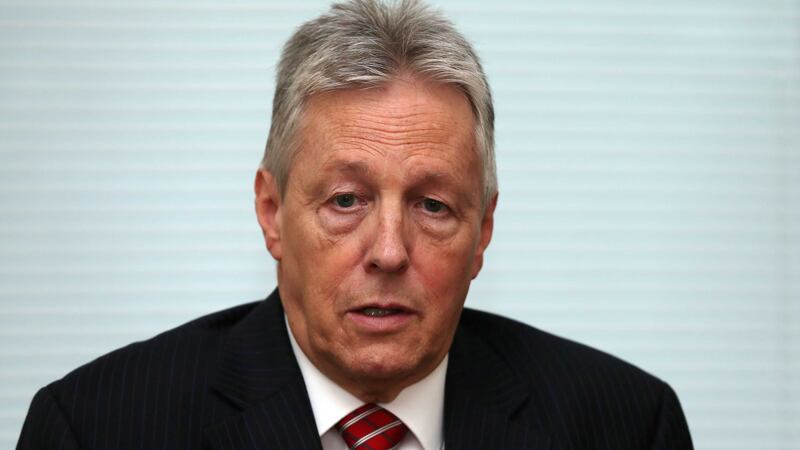In recent months and years, Peter Robinson has been linked to a number of names in world of business. Some of these links are now the subject of speculation but one fact can already be stated - a majority of the names are Catholic.
This highlights a critical fact about Robinson, which is that to a surprisingly broad degree he does not have a sectarian bone in his body.
Nationalists, republicans and many unionists might beg to differ. Robinson was a founding member of the DUP, whose 1971 creation largely consisted of rebranding the Protestant Unionist Party.
He rose quickly at the right hand of Ian Paisley, the epitome of a sectarian politician.
Yet it is what Robinson did not do in that situation that is so striking. First, he did not join any of the loyal orders. This cannot be explained by Paisley’s falling out with the main orders, which occurred once he realised they would not let him be in charge. The ‘big man’ still made sure to join the tiny and obscure Independent Loyal Orange Institution, so that he had a sash to parade up and down in as opportunism required.
Robinson, by contrast, has spent 45 collarette-free years at the east Belfast coalface of hardline and frontline unionism. He is the first non-Orange leader of unionism and only the fifth such unionist minister in any incarnation of Stormont. Relatively few Protestants may join the loyal orders but then relatively few are under any compunction to do so. Robinson’s choice is remarkably conscious.
The second thing our Castlereagh hero did not do throughout his long years at Paisley’s side was to become a Free Presbyterian. For the party’s first two decades, the DUP and the Free Ps were synonymous and the Church retains serious influence at senior party level today. It has served Robinson well as leader to stay above the resulting factionalism but that would not have been the case for the first half of his career, nor should he be particularly inclined against Paisley’s Church.
Robinson is a practising evangelical of a type non-evangelicals find indistinguishable from Free Presbyterianism. One thing that obviously distinguishes them is eye-watering Paisleyite anti-Romanism. The sort of congregations Robinson frequents tend to water this down or disdain it entirely, priding themselves on how much they love Catholics (a stance they maintain by never knowingly meeting them.)
Robinson might never have professed his love for Catholics, while his belated attempts at outreach have veered from the cynical to the patronising. However, his long record is devoid of the hateful anti-Catholic statements that can be cited against so many of his colleagues.
To the extent that anyone should be credited for the bare minimum of civilised behaviour, Robinson’s non-sectarianism may be due to the very traits he is usually criticised for - being cold and calculating. Perhaps he is not interested in other people’s religion because he is not interested in other people generally and he has no time for sectarianism because he has calculated it is pointless.
If so, we should take progress where we find it. Robinson was never going to reach this conclusion by holding hands at the community centre.
Sectarianism is about more than religion, of course. Political intolerance can be as bad or worse but latterly Robinson has performed well enough in this regard. Once he decides to do a deal with Sinn Fein, he jumps in with both feet. His rows with republicans are invariably about deals he feels have been broken, after which he can fake friendliness towards Martin McGuinness almost better than he can fake it with anyone.
It must help that Robinson is not a Troubles victim. The worst attack alleged against his person was a case of a food poisoning in a restaurant, which his wife blamed on “nationalist staff”.
Nigel Dodds and Arlene Foster, Robinson’s probable successors as party leader and first minister respectively, both suffered horrendous traumas at the hands of the IRA. Gunmen targeted Dodds while he visited his son at a children’s hospital, a crime considered shocking even by Troubles standards. Foster had to leave her home as a child after an attempt on her father’s life and later survived the bombing of a school bus.
How many of us could live through these experiences then sit calmly in an office with the people we hold responsible?
If the DUP leader is only weeks away from stepping down, as reports suggest, we may all soon miss his ecumenical qualities.









